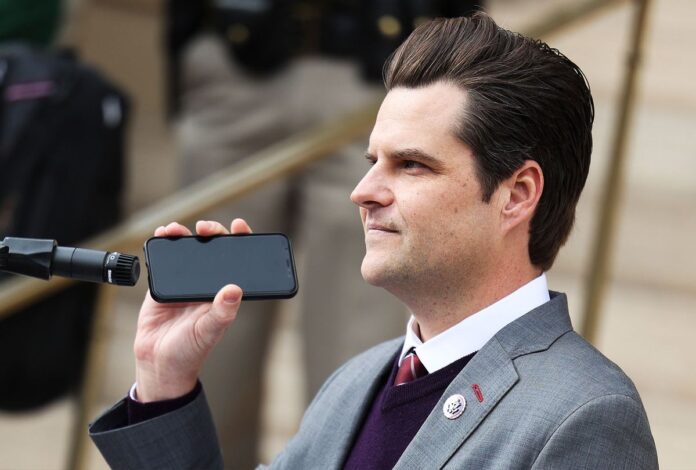
3 Key Takeaways:
-
Report Precedes Court Ruling: The House Ethics Committee released its findings on Matt Gaetz before a judge could decide on his request to block publication.
-
Jurisdictional Showdown: Gaetz’s legal stance—that the Committee loses authority once a representative leaves office—remains untested by the court’s final say.
-
Beyond Injunctive Relief: With the report now public, Gaetz may pivot toward damages or a declaratory judgment to establish that the Committee acted outside its bounds.
By Samuel A. Lopez – USA Herald
[WASHINGTON, D.C.] – Hello, everyone—Samuel Lopez here from USA Herald, reporting on a dramatic twist in former Representative Matt Gaetz’s lawsuit against the House Committee on Ethics (“the Committee”). Gaetz initially sought a Temporary Restraining Order (TRO) and preliminary injunction to stop the Committee from publishing an investigative report he believed would tarnish his reputation. However, in a stunning turn of events, the Committee released the report before the judge could grant or deny Gaetz’s request.
Why Gaetz Sued
He contends that (1) the Committee loses jurisdiction over private citizens once they leave office; (2) he received inadequate notice and a fair chance to dispute the Committee’s findings; (3) public release of such materials violates the Privacy Act; and (4) making a Congressional report public prior to any formal charges (federal authorities filed none after investigating him) amounts to reputational harm.
The Committee’s Swift Move
Despite Gaetz’s legal arguments, the Committee opted to publish. Critics see this as a strategic step to preemptively share its findings, effectively bypassing the court’s pending review. To Gaetz and his supporters, it’s a pointed demonstration of bias—especially considering the Department of Justice declined to press charges after a thorough investigation.
Where Does the Case Go Now?
-
Mootness: Courts sometimes deem an injunction irrelevant if the act in dispute has already happened. Gaetz’s lawyers may argue that ongoing or additional disclosures (e.g., investigative files) still require a court’s intervention.
2. Potential Damages: Gaetz might now pivot to a claim for damages if he can prove the Committee violated procedural or statutory rules.
3. Declaratory Judgment: Even post-publication, he can request a ruling on whether the Committee had the constitutional or procedural authority to release the report in the first place.
4. Broader Implications: If the judge finds the Committee overstepped, it could set a legal precedent limiting future inquiries into former members.
Gaetz’s lawsuit highlights important constitutional and procedural questions. He’s effectively saying: “If federal authorities found no basis to charge me, why resurrect these allegations in a congressional report?” By challenging the Committee, he’s championing due process and emphasizing that no one should face publicly distributed, potentially defamatory statements without proper recourse.
The Ethics Committee Members
Chaired by Michael Guest (R-MS), the Committee also includes David Joyce (R-OH), John Rutherford (R-FL), Andrew Garbarino (R-NY), Michelle Fischbach (R-MN), Susan Wild (D-PA), Mark DeSaulnier (D-CA), Veronica Escobar (D-TX), Deborah K. Ross (D-NC), and Glenn Ivey (D-MD). Gaetz alleges personal or political bias among some members—a claim this abrupt release may fuel.
Why It Matters to You
This case speaks to the balance between government oversight and individual rights. If the Committee can sidestep a judge and publish findings about a former official, what could prevent similar overreach against private citizens or less prominent public figures? Gaetz’s legal challenge may shape how far congressional authority can extend once a representative leaves office.
In speaking with colleagues across the legal sphere, opinions vary. Some find the Ethics Committee’s move to be brash but perhaps legally permissible. Others view it as an overreach, potentially subject to judicial pushback.
In my view, “Gaetz’s quest for injunctive relief may be moot for the moment, but his quest for accountability—and possibly retribution for perceived injustices—certainly isn’t.” – Samuel A. Lopez, Legal Analyst and Journalist, USA Herald
For even more legal insights and reporting, check out my USA Herald bio. You can also
Check out these short videos: Defining Excellence in Law & Journalism
Focused, driven, and dedicated to the truth


